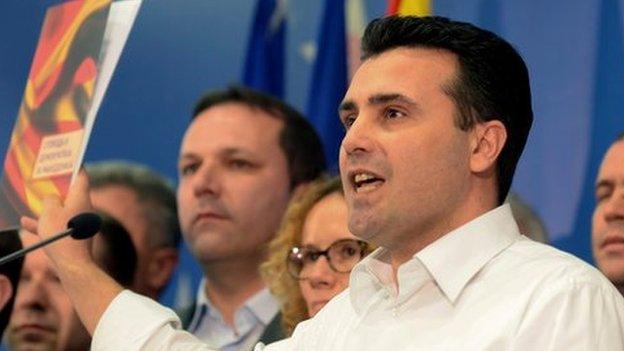Macedonia protests 'to continue' against PM Gruevski
- Published
Protesters set up camp outside the government building in the capital, Skopje
Demonstrators in the Macedonian capital Skopje have vowed to continue their protest until long-serving Prime Minister Nikola Gruevski resigns.
Many of tens of thousands of people who took part in Sunday's rally outside the government have left, but hundreds remained, putting up tents overnight.
The rally followed the release by the opposition of covert recordings which appear to show ministers plotting vote-rigging and the cover-up of a murder.
Mr Gruevski denies the allegations.
The government says the opposition is trying to destabilise the country for its own benefit.
Mr Gruevski's supporters are planning their own demonstration in Skopje on Monday.
Adding to the political instability, last weekend eight police officers and 14 ethnic Albanian fighters were killed in clashes in the city of Kumanovo.
'No price'
On Sunday night a long row of tents was seen near the illuminated government building, the BBC's Guy De Launey in Skopje reports.
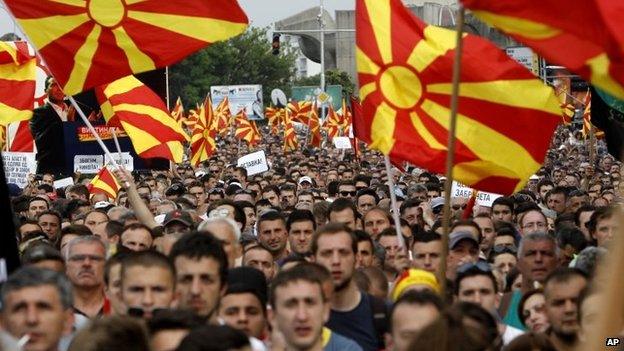
Tens of thousands of people rallied in the capital earlier on Sunday
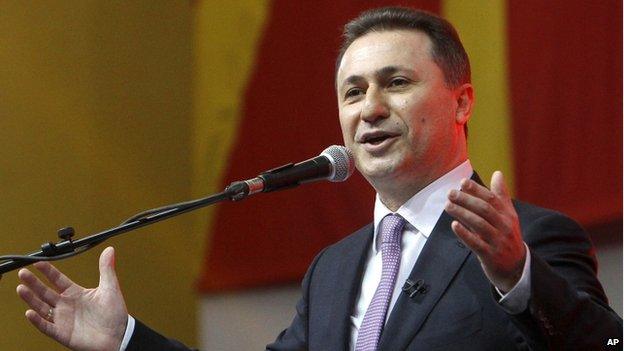
Conservative PM Nikola Gruevski (pictured) is involved in a tough power battle against his centre-left opponents
Our correspondent adds that opposition leader Zoran Zaev was sitting at a picnic table, surrounded by supporters. He told the BBC he would spend the night there.
"Freedom and democracy have no price for us," opposition supporter Mirjana Janov was quoted as saying by the Associated Press news agency.
"And we will not stop until we see this dictator resigning," she added.
Earlier on Sunday, demonstrators carried both Macedonian and Albanian flags in a show of unity.
Police in riot gear were stationed near the protests. There were no reports of violence.
In 2001, Macedonia was on the brink of civil war when armed rebels demanded greater rights for the Albanian minority, which makes up about a quarter of Macedonia's 2.1 million population.
'Coup attempt'
Last week, two ministers and the head of the intelligence service resigned.
Opposition leaders said intelligence chief Saso Mijalkov and Interior Minister Gordana Jankulovska were behind attempts to control the press, judiciary and electoral officials by tapping their phones.
Opposition leader Zoran Zaev says the prime minister is trying "to save his skin"
Mr Zaev has been releasing a steady stream of recordings since February.
His party accuses the government of wiretapping 20,000 people, including politicians, journalists and religious leaders.
He says that scores of leaked recordings reveal corruption at the highest levels of government, including the mismanagement of funds, dubious criminal prosecutions of opponents and even cover-ups of killings.
He argues that the abuse of power allegations are so serious that the prime minister has to resign and call new elections.
Opposition parties have boycotted parliament since accusing the governing coalition of fraud in the April 2014 election.
But Mr Gruevski, who has won successive elections since 2006, has repeatedly rejected the allegations.
He has accused Mr Zaev of orchestrating a coup at the behest of unnamed foreign spy agencies who, he says, want to overthrow his conservative government.
- Published13 May 2015
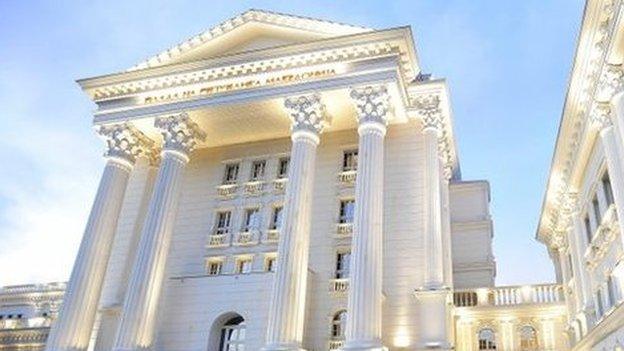
- Published10 May 2015
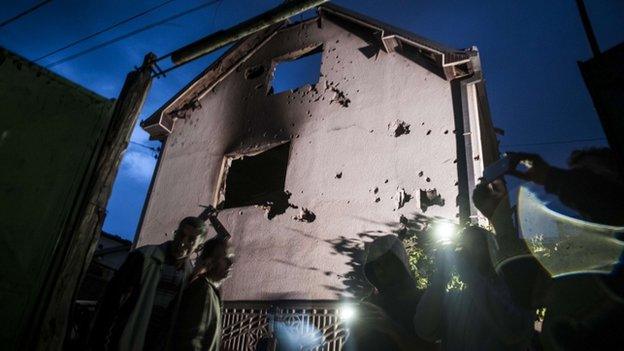
- Published6 May 2015
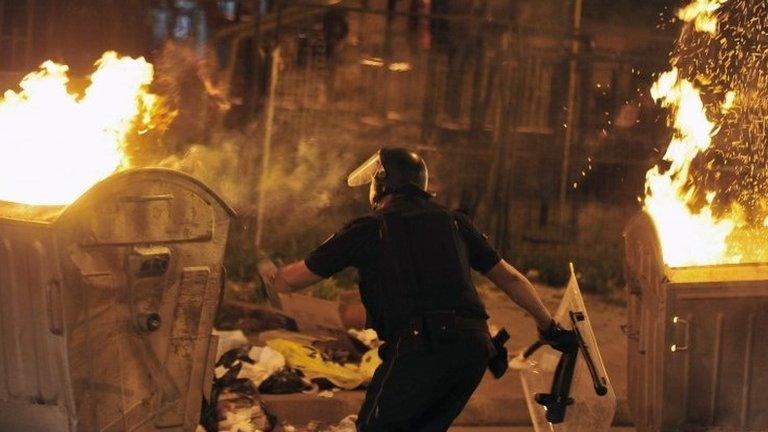
- Published10 June 2024
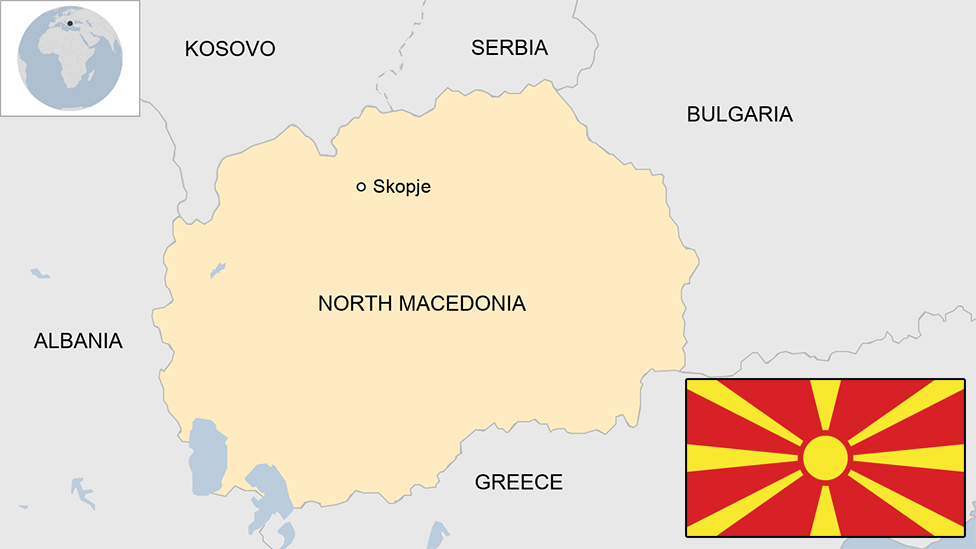
- Published10 February 2015
